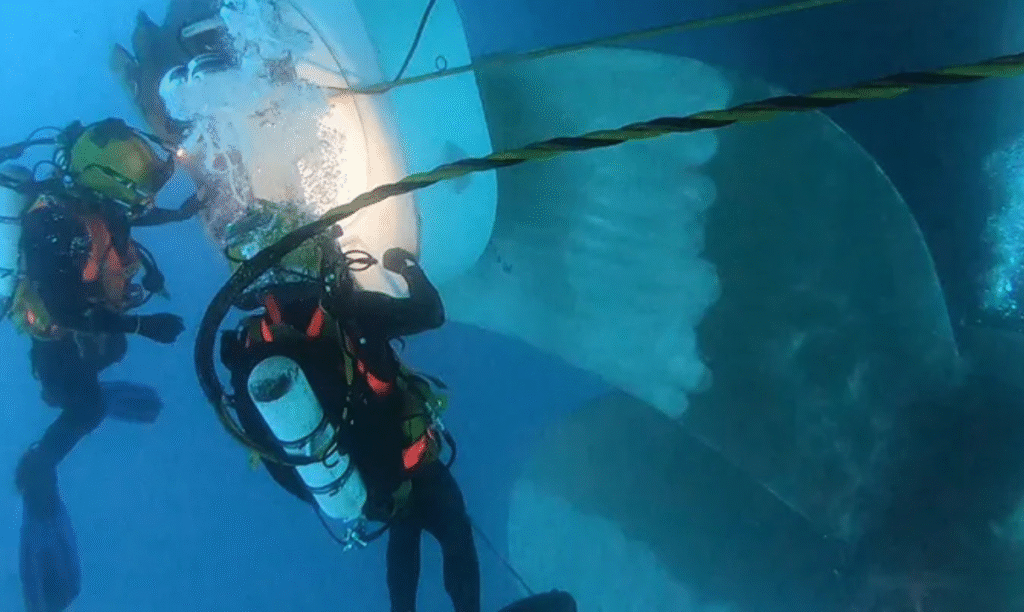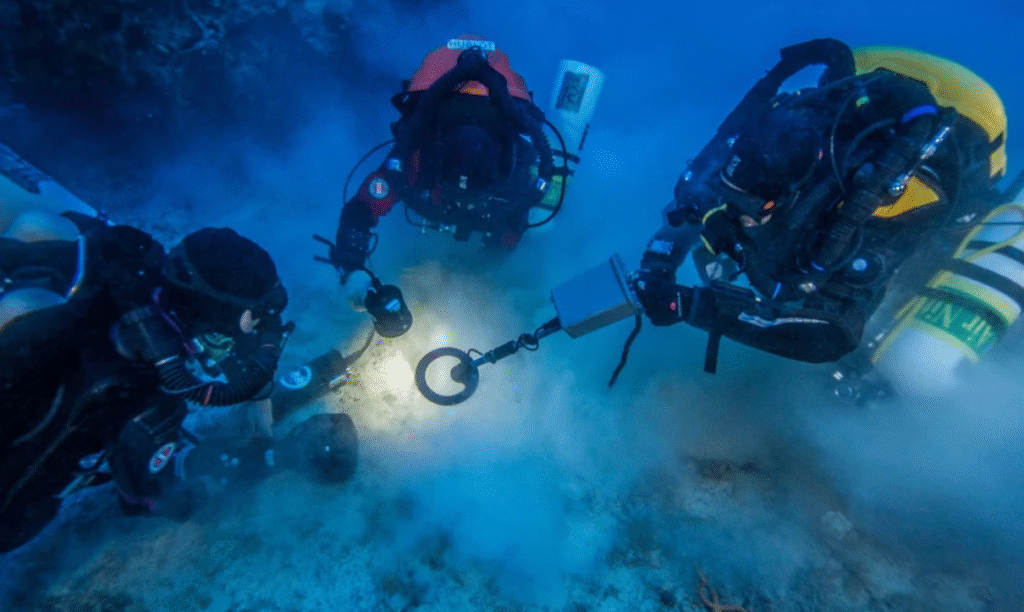In the vast and complex world of global shipping, contracts are as vital as the engines that keep vessels moving. Among these agreements, the BIMCO clauses on hull fouling stand out as one of the most debated yet crucial subjects. Why? Because biofouling—the accumulation of marine organisms on a vessel’s hull—doesn’t just slow ships down; it has legal, financial, and environmental consequences.
Imagine your ship as a marathon runner. If that runner carries ankle weights (biofouling), they slow down, consume more energy, and risk penalties for underperformance. In shipping, this translates to higher fuel costs, non-compliance with environmental regulations, and disputes between owners and charterers. That’s exactly where BIMCO clauses on hull fouling come into play.
This article will break down what these clauses mean, why they matter to ship owners, operators, and managers, and how you can stay ahead by managing both compliance and costs effectively.
Why Hull Fouling Became a Hot Issue
For decades, fouling was seen as just a technical nuisance. But the issue has grown into a legal and compliance challenge because:
- Environmental risks: Biofouling introduces invasive species that disrupt ecosystems, prompting IMO and MARPOL interventions.
- Fuel inefficiency: Even light fouling can increase fuel consumption by 10–15%.
- Commercial disputes: Delays caused by hull fouling can create costly disagreements between owners and charterers over responsibility.
With over 80% of world trade carried by sea, even a small hiccup in hull efficiency translates to enormous costs and emissions. BIMCO—short for the Baltic and International Maritime Council—introduced specific contractual clauses to tackle this.

What Are BIMCO Clauses on Hull Fouling?
BIMCO clauses on hull fouling are standardized contractual terms designed to clarify who bears the responsibility for cleaning, inspection, and associated costs related to hull fouling during a charter party period.
These clauses typically cover:
- Responsibility allocation: Whether owners or charterers handle fouling.
- Circumstances: How long a vessel has remained idle in warm waters and at whose instruction.
- Remedies: Requirements for cleaning at agreed-upon times or ports.
- Cost handling: Who pays for what—cleaning, deviation, or downtime.
By setting these rules, the clauses aim to prevent bitter disputes that arise when a vessel underperforms or when hull fouling leads to regulatory compliance issues.
The Most Common BIMCO Clauses on Hull Fouling
Here are the main types of clauses you’ll likely encounter in shipping contracts:
1. The BIMCO Hull Fouling Clause 2013
- Covers responsibility for fouling during periods of idling in tropical waters.
- States that charterers may be liable for fouling removal if idling was due to their orders.
2. Time Charter Fouling Clauses
- Often specify maximum allowable idle time before fouling responsibility falls to the charterer.
- Example: 15 consecutive days in warm waters trigger cleaning obligations.
3. Interport and Port Stay Clauses
- Address cases where hull fouling happens during extended port stays.
- Typically applicable when ports are in regions known for severe fouling.
These clauses are constantly evolving as BIMCO consults with ship operators, owners, and regulators to align them with IMO’s biofouling guidelines. Also read about California & US EPA in-water cleaning regulations.
Why BIMCO Clauses on Hull Fouling Matter
These clauses are far more than paper-based formalities. They directly impact:
Financial Responsibilities
- Cleaning costs can exceed $300,000 for large vessels.
- Unclear contracts can lead to time-consuming legal disputes.
Environmental Compliance
- Poorly maintained hulls can violate MARPOL and IMO biofouling guidelines.
- Non-compliance can lead to port entry restrictions, especially in Australia and New Zealand.
Operational Efficiency
- Hull drag increases fuel consumption and extends voyage times.
- This results in higher CO₂ emissions, contradicting global decarbonization efforts led by the IMO.
In short, BIMCO clauses on hull fouling keep relationships between owners and charterers predictable, transparent, and fair while supporting environmental obligations.
✅ 4 Things to Check for Safety at Sea pic.twitter.com/dAxhJQ2i6U
— Marine Super Cargo (@Marinsupercargo) September 14, 2025
Case Studies: When Clauses Saved (or Cost) Millions
Case 1: The Idle Tanker in West Africa
An oil tanker remained anchored for three weeks waiting for cargo clearance. Severe fouling developed. The owner argued the charterer should bear the cleaning costs. Thanks to a clear BIMCO clause, liability fell on the charterer, saving the owner $250,000.
Case 2: Delay in the South Pacific
A bulk carrier arrived at an Australian port with heavy fouling. Cleaning was mandated before port entry. The absence of BIMCO clauses left both owner and charterer in dispute, causing losses exceeding $1 million in delays and legal fees. Learn more about Singapore MPA regulations on underwater cleaning.
Challenges With Implementing BIMCO Clauses
Despite their usefulness, BIMCO clauses on hull fouling are not perfect. Problems often include:
- Disputes over idle period lengths (e.g., 10, 15, or 20 days).
- Regional variations in port-state control rules.
- Lack of awareness among some operators or poorly drafted contracts.
- Rapid changes in environmental guidelines that clauses fail to fully reflect.
Best Practices for Ship Owners and Operators
To ensure BIMCO clauses on hull fouling work in your favor:
- Negotiate upfront: Set clear idle time thresholds and fouling responsibilities at the contract stage.
- Use performance logs: Document fuel efficiency trends and idle times to support claims.
- Schedule proactive cleanings: Prevent disputes by not waiting for fouling to become visible.
- Stay updated: Review changes in IMO and MARPOL guidelines to ensure current alignment.
Compliance, Costs, and the Environmental Link
Hull fouling is no longer just about efficiency—it’s about global responsibility.
- Compliance risks: Countries like New Zealand have strict anti-biofouling entry rules, making BIMCO clauses even more important. Reference: IMO biofouling guidance.
- Cost risks: Unplanned cleaning equals downtime and operational losses.
- Environmental impact: Heavy fouling contributes tons of unnecessary CO₂ and spreads invasive species.
By correctly applying BIMCO clauses on hull fouling, owners and charterers sharpen their operational edge while ensuring compliance and sustainability.

The Future of BIMCO Clauses and Hull Cleaning
Looking ahead, BIMCO is expected to update these clauses further to reflect new realities:
- Digital Monitoring: Performance data from hull sensors may soon decide charter disputes.
- Green Clauses: Contracts may explicitly require eco-friendly hull cleaning solutions.
- Shared Liability Models: Hybrid approaches to cost and responsibility depending on environmental zones transited.
- Integration with IAPH Policies: Ports could begin demanding BIMCO clause alignment as a compliance prerequisite.
This future highlights the increasing intersection of contracts, technology, and environmental obligation.
Conclusion
BIMCO clauses on hull fouling are more than fine print—they are a safeguard against financial losses, legal disputes, and environmental breaches. Like a compass for mariners, they guide owners and charterers through the uncertain waters of hull fouling responsibilities.
Key Takeaways:
- BIMCO clauses on hull fouling clarify responsibilities, reducing disputes.
- They protect financial stability while aligning with IMO and MARPOL guidelines.
- Future clauses will integrate environmental and technological realities even more deeply.
For sustainable, compliant, and cost-efficient hull maintenance, partnering with experts like CleanShip.co is a decisive move forward.
FAQs:
Q1. What are the BIMCO clauses on hull fouling?
They are standardized contract terms that assign responsibility for hull fouling cleaning, costs, and liabilities between owners and charterers.
Q2. Why are these clauses important?
They prevent disputes, ensure cost clarity, and help vessels maintain compliance with IMO and MARPOL biofouling regulations.
Q3. Who pays for hull cleaning under BIMCO clauses?
It depends on the contract. Typically, if fouling occurs due to charterer instructions (e.g., long idling), charterers cover the costs.
Q4. How do BIMCO clauses relate to environmental compliance?
They help enforce proactive hull cleaning schedules that reduce invasive species risks and fuel inefficiency, supporting MARPOL goals.
Q5. What’s next for BIMCO clauses on hull fouling?
Expect clauses to evolve with digital monitoring, stricter port requirements, and greater focus on green, sustainable cleaning practices.


